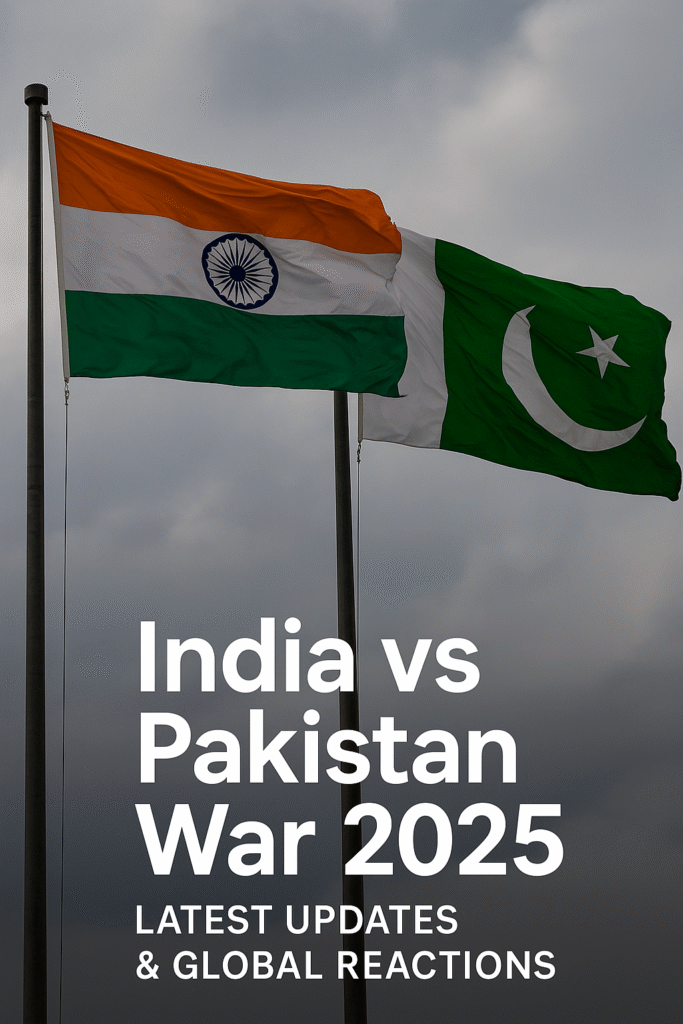
The year 2025 has witnessed rising tensions between two nuclear-armed neighbors, India and Pakistan, with a series of border skirmishes escalating into what many analysts are calling the “India vs Pakistan War 2025”. This development has not only disrupted peace in South Asia but also triggered global reactions from political leaders, humanitarian organizations, and the general public.
The conflict began in early January 2025 when a series of cross-border attacks in the Kashmir region led to military retaliation from both sides. Tensions that had been simmering over the past few years due to political disagreements, water disputes, and border violations reached a breaking point.
Despite diplomatic attempts, a full-scale military conflict was declared by mid-February.
Major Cities Affected: Cross-border shelling has impacted cities including Srinagar, Lahore, Amritsar, and Rawalpindi.
Casualties: Reports suggest over 2,000 casualties on both sides within the first month of conflict.
Airstrikes & Naval Movements: Both countries have deployed air force units and naval fleets along critical borders.
Internet Blackouts: Several regions in both countries have reported communication blackouts and restricted access to news portals and social media.
United Nations (UN): The UN Secretary-General has called for an emergency meeting urging both nations to agree to a ceasefire.
United States & China: Both superpowers have expressed concern and offered to mediate peace talks.
Middle East & EU: Countries like Turkey, UAE, Germany, and France have urged for de-escalation and highlighted the need for humanitarian aid.
Stock Market Plunge: Stock exchanges in both countries saw a 10–15% decline in major indexes.
Refugee Crisis: Thousands of civilians have fled from border towns, resulting in a refugee situation in neighboring safe zones.
Educational & Trade Disruptions: Cross-border trade has been halted, and schools in affected regions are closed indefinitely.
Military experts warn that any escalation involving nuclear capabilities could lead to catastrophic global consequences. Regional peace think tanks have urged both governments to re-engage in diplomatic discussions.
While both nations have their political and territorial differences, the cost of war is always paid by ordinary citizens. Peaceful dialogue, economic collaboration, and mutual respect are the only sustainable soluti
© 2025 Created with BroCodeTechSol.com | All Rights reserved.
Chat Now!